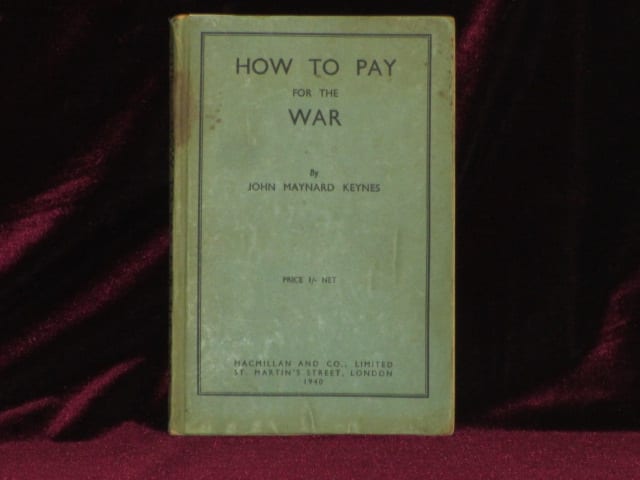Keynes& #39;s 1940 pamphlet "How to Pay For the War" reframed the question of large-scale project financing. Rather than focusing on money (which governments can print at will), it focused on how to minimize public spending& #39;s impact on physical resources.
https://ia801602.us.archive.org/18/items/in.ernet.dli.2015.499597/2015.499597.HOW-TO_text.pdf
1/">https://ia801602.us.archive.org/18/items/...
https://ia801602.us.archive.org/18/items/in.ernet.dli.2015.499597/2015.499597.HOW-TO_text.pdf
1/">https://ia801602.us.archive.org/18/items/...
Somewhere along the way, we forgot Keynes& #39;s hypothesis (which was borne out by the war itself): money is a completely different proposition for sovereign currency issuers than it is for USERS of that sovereign currency, like states, cities and households (same for debt).
2/
2/
For governments, the problem with spending isn& #39;t "getting into debt" (all money in circulation is government debt: if taxes equalled spending there wouldn& #39;t any money in circulation). The problem for governments is crowding: getting into bidding wars with money-users.
3/
3/
A government can procure any resource that is available for sale in its currency without negative effects, provided it isn& #39;t trying to procure something the private sector is using. They can employ all unemployed people (people whose labor the private sector doesn& #39;t want).
4/
4/
This is why asking "How will you pay for [Medicare for All/free college/etc]" is foolish. If the government sunsets private health insurance, the capacity to provide medical care still exists, but there will not be any private-sector bidders for that capacity.
5/
5/
The government can spend the money for public healthcare into existence without crowding private sector spending. During the war, the USG limited private-sector procurement of needed material (rationing), and enticed money-users to sequester most of what it spent (war bonds).
6/
6/
This was Keynes& #39;s point: the problems the government faced in "paying for the war" were not "it costs too much" -- it was "How do we spend all this money without creating inflationary bidding wars for war materiel?"
7/
7/
This is how we& #39;ll finance the "war on covid" - and the Green New Deal. Not with "payfors" (Congress& #39;s idea that all spending must be balanced with cuts), but with what @NathanTankus calls "non-fiscal payfors."
https://nathantankus.substack.com/p/how-to-pay-for-the-pandemic-war
8/">https://nathantankus.substack.com/p/how-to-...
https://nathantankus.substack.com/p/how-to-pay-for-the-pandemic-war
8/">https://nathantankus.substack.com/p/how-to-...
"The question of resourcing the pandemic one is a matter of supply chain and factory reconversion experts not economics per-se."
That& #39;s an important point. Congress is constrained by how fast the factories it can procure from can make ventilators - not how much they cost.
eof/
That& #39;s an important point. Congress is constrained by how fast the factories it can procure from can make ventilators - not how much they cost.
eof/

 Read on Twitter
Read on Twitter


